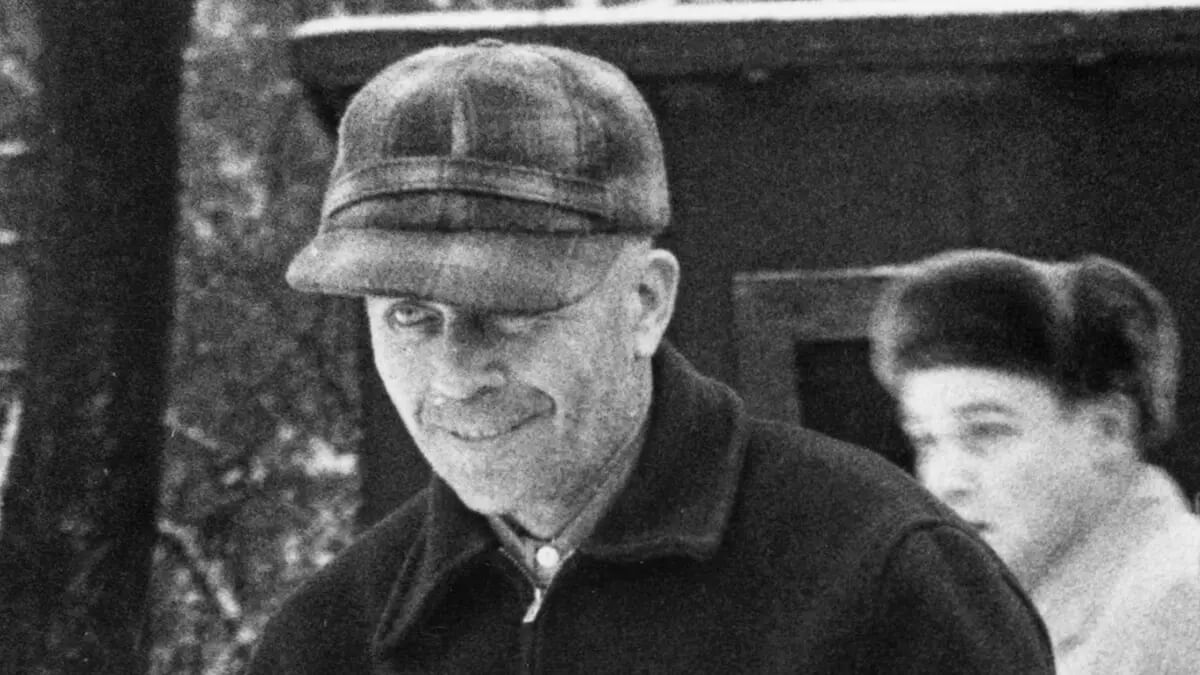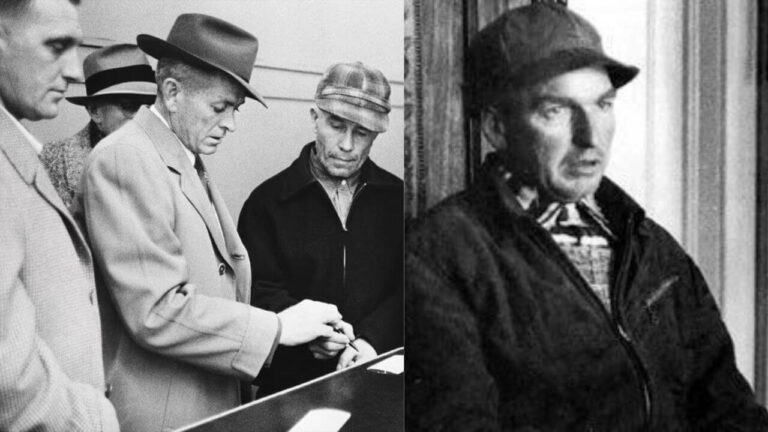The name Henry George Gein may not ring any bells for many, despite his connection to one of America’s most notorious killers. Born in the early 20th century, Henry lived a life largely overshadowed by his infamous brother, Ed Gein. But who was Henry George Gein, and what kind of life did he lead before his untimely death? This blog post aims to delve into the life of this often-forgotten figure.
Often overshadowed by the infamous crimes of his brother, Ed Gein, Henry George Gein remains a figure of intrigue. His life, connection to the notorious Ed Gein, tragic death, and lasting legacy provide a compelling narrative. This blog post aims to delve into the enigmatic life of Henry George Gein.
Early Life of Henry George Gein
Born on January 8, 1901, in La Crosse, Wisconsin, Henry George Gein was the eldest son of George Philip Gein and Augusta Wilhelmina Lehrke. His early life was marked by hardship. His father, George, was a man of many jobs, including carpentry, tanning, and insurance selling. However, his inconsistent employment made providing for the family a constant struggle.
Family Background of Henry George Gein
The Gein family was a troubled one. George Philip Gein battled alcoholism, while Augusta, a devout Lutheran, held strict religious beliefs that heavily influenced her children’s upbringing. She persistently preached about the world’s inherent immorality and the evils of drinking, instilling a deep sense of religious fear in her sons. This austere upbringing played a significant role in shaping the lives of both Henry and his brother Ed.
Siblings of Henry George Gein
Aside from his parents, Henry’s only immediate family was his younger brother, Edward Theodore Gein, also known as Ed Gein. As children, the brothers were incredibly close, but their relationship grew strained as they grew older. This was primarily due to their differing views on their mother, whom Ed idolized but Henry began to resent over time.

How Was Their Relationship?
The dynamic between the Gein brothers was a complex one, with a mixture of love, rivalry, and resentment. Henry often voiced his concerns about Ed’s unhealthy attachment to their mother, which led to heated arguments. Despite their differences, however, the brothers remained close, working together on odd jobs around their town of Plainfield, Wisconsin.
Life in Plainfield, Wisconsin
Plainfield was a small, close-knit community where the Gein brothers were known for their hard work and reliability. Despite their troubled family life, Henry managed to maintain a sense of normalcy. He even developed a romantic relationship with a divorced mother of two and had plans to move in with her, signaling his desire for a life separate from his brother and their past.
Career of Henry George Gein
Henry George Gein was a man of simple means. Born on January 16, 1901, in La Crosse County, Wisconsin, he spent the majority of his life working as a local handyman and farmer. With a work ethic that was as robust as it was relentless, he became a respected figure within his small community. Despite the difficult circumstances of his upbringing, Henry’s determination and resilience shone through in his work, earning him a reputation as a reliable, hardworking individual.
Connection to Ed Gein
The relationship between Henry George Gein and his younger brother, Ed Gein, was complex. Raised in the same oppressive household, the brothers led drastically different lives. While Henry appeared to have adapted to their challenging upbringing, Ed’s life took a much darker turn. Ed Gein’s gruesome crimes would eventually overshadow Henry’s quiet existence. Despite their shared background, the brothers’ paths diverged dramatically, marking a stark contrast in their individual responses to adversity.
Legacy of Henry George Gein
Henry George Gein’s legacy is largely intertwined with his brother’s notoriety. His life serves as a stark contrast to Ed’s, showcasing the power of personal resilience in the face of adversity. While he may not have achieved fame or fortune, Henry George Gein left behind a legacy of hard work, perseverance, and dignity, even in the shadow of his infamous brother.
Tragic Death of Henry George Gein
The death of Henry George Gein was a tragic event shrouded in mystery. Henry died in a fire near the family’s farm in 1944, and suspicions of foul play arose. The circumstances surrounding his death have fueled speculations and conspiracy theories, further adding to the mystique of the Gein family story.
Historical Context of Henry George Gein
Henry George Gein’s life and death should not be viewed in isolation but rather within the broader historical context. Born at the turn of the 20th century, Henry lived through significant historical events such as the Great Depression and both World Wars. His life story is inextricably linked to these historical events, offering a fascinating look into the era’s social and cultural dynamics.
Remembrance of Henry George Gein
Henry’s life was tragically cut short on May 16, 1944, in a mysterious fire incident. The official cause of his death was heart failure, but the bruises found on his head raised questions about possible foul play. Regardless of the circumstances of his death, Henry’s life remains a footnote in the shadow of his infamous brother Ed Gein, whose horrific crimes inspired numerous horror movies and novels.
Conclusion
Henry George Gein’s life was far from ordinary. Despite his tragic end and the notoriety of his family, he strove to lead a normal life, demonstrating resilience in the face of adversity. His story serves as a reminder that every individual’s life, no matter how overshadowed by others, has its own worth and narrative. While Henry’s life may have been marked by hardship and overshadowed by his brother’s infamy, it is a life that deserves to be remembered and understood in its own right.
Henry George Gein’s life was one marked by struggle, resilience, and an unyielding work ethic. While often overshadowed by his notorious brother, Ed Gein, Henry’s life serves as a testament to the human spirit’s ability to endure hardship. His story, marked by tragedy and resilience, offers a compelling glimpse into the complexities of family dynamics, personal resilience, and the indelible mark one’s upbringing can leave.
You may also like:


